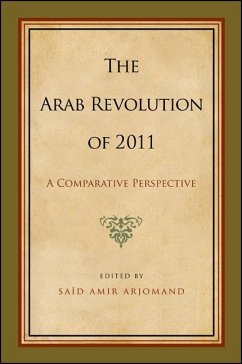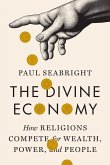How do we make sense of the Arab revolution of 2011? What were its successes, its failures, and significance in world history? The Arab Revolution of 2011 brings together a broad range of perspectives to explain the causes, processes, and consequences of the revolution of 2011 and its critical implications for the future. The contributors, in this major addition to the sociology of revolutions, step back from the earlier euphoria of the Arab Spring to provide a sober analysis of what is still an ongoing process of upheaval in the Middle East. The essays address the role of national armies and foreign military intervention, the character and structure of old regimes as determinants of peaceful or violent political transformation, the constitutional placement of Islam in post-revolutionary regimes, and the possibilities of supplanting authoritarianism with democracy. The revolution of 2011 is also examined within a broad historical perspective, comparing the dynamics of revolution and counterrevolution in countries such as Tunisia, Egypt, and Libya with such epochal events as the European revolution of 1848 and Russia in 1917.
SUNY Press has collaborated with Knowledge Unlatched to unlock KU Select titles. The Knowledge Unlatched titles have been made open access through libraries coming together to crowd fund the publication cost. Each monograph has been released as open access making the eBook freely available to readers worldwide. Discover more about the Knowledge Unlatched program here: https://knowledgeunlatched.org/. It can also be found in the SUNY Open Access Repository at https://soar.suny.edu/handle/20.500.12648/8432.
SUNY Press has collaborated with Knowledge Unlatched to unlock KU Select titles. The Knowledge Unlatched titles have been made open access through libraries coming together to crowd fund the publication cost. Each monograph has been released as open access making the eBook freely available to readers worldwide. Discover more about the Knowledge Unlatched program here: https://knowledgeunlatched.org/. It can also be found in the SUNY Open Access Repository at https://soar.suny.edu/handle/20.500.12648/8432.
Dieser Download kann aus rechtlichen Gründen nur mit Rechnungsadresse in A, D ausgeliefert werden.









